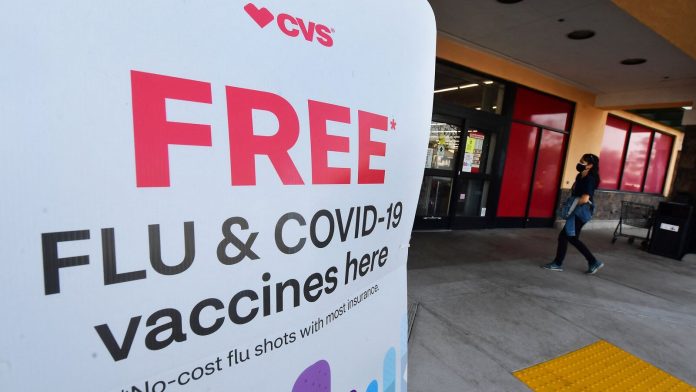As we enter the fall season, vaccines remain one of the most effective and secure means of safeguarding ourselves and our loved ones from severe cases of COVID-19. The latest COVID-19 vaccines have been adapted to target the current circulating variants and are recommended for all individuals aged 6 months and older.
In this question-and-answer session, Dr. Andy Pekosz, a professor in Molecular Microbiology and Immunology, provides comprehensive information about the updated vaccine. He discusses what sets it apart from previous COVID-19 vaccines, who should receive it, and whether it can be administered alongside vaccines for other fall viruses like influenza (flu) and respiratory syncytial virus (RSV).
As of September 14, 2023, FDA approval and CDC recommendations pertain to the mRNA vaccines produced by Pfizer-BioNTech and Moderna. An additional vaccine from Novavax is currently undergoing FDA review. [This article will be updated with more information about the Novavax COVID-19 vaccine once available.]
What Makes the Updated COVID Vaccine Different?
The recently FDA-approved COVID vaccine is formulated based on a variant known as XBB.1.5. It will be the sole COVID vaccine available this autumn. Unlike the previous bivalent COVID vaccine, this updated version is considered monovalent, containing only the XBB.1.5 variant.
Who Should Get It and When?
One dose of the updated COVID vaccine is recommended for individuals aged 5 and older. According to revised CDC guidelines, individuals in certain high-risk categories may receive additional doses under the guidance of their healthcare provider. For children aged six months to five years, vaccination is recommended, with the number of doses depending on the specific vaccine (Pfizer-BioNTech or Moderna) and the child’s age. To prepare for the upcoming holiday season and colder weather with more indoor gatherings, experts suggest that all eligible individuals receive their updated COVID vaccine by mid-October.
Effectiveness Against Current Variants
Studies indicate that the updated vaccine is effective against the primary variants causing COVID-19 cases in the United States, including EG.5, FL.1.5.1, and other members of the XBB family. Although these variants are not identical to the vaccine’s XBB.1.5 strain, they share close genetic similarities, and antibodies generated against XBB.1.5 exhibit strong cross-reactivity with these variants.
Effectiveness Against Highly Mutated BA.2.86 Variant
Laboratory data suggests that the updated vaccines can elicit an immune response capable of recognizing the highly mutated BA.2.86 variant. This is particularly reassuring given initial concerns about this variant’s extensive mutations. Furthermore, BA.2.86 has not caused a surge in cases in regions where it has been detected, indicating its limited ability to outcompete other circulating variants.
Not a Booster, but an Updated COVID Vaccine
The terminology has shifted from referring to this as a booster to calling it an updated COVID vaccine. This change reflects the transition to treating COVID similarly to influenza, with an annual vaccination strategy. Calling it an updated COVID vaccine underscores that it doesn’t merely boost prior immunity but generates a new immune response targeting the current variants.
Timing After Recent COVID Infection
If you’ve recently had COVID, it’s essential to stay current with your vaccines. According to CDC guidelines, you can wait three months from the onset of symptoms or, for asymptomatic cases, since the initial positive test. Some evidence suggests waiting up to six months after a COVID infection to receive the updated vaccine. This extended wait is not recommended for high-risk individuals but can be discussed with a healthcare provider.
Timing After a Dose of the Bivalent Vaccine
Individuals aged 5 and older should wait at least two months after their last dose of any COVID-19 vaccine before receiving the updated COVID vaccine, according to CDC guidance.
Is the Vaccine Free?
COVID vaccines were free for all Americans during the COVID-19 Public Health Emergency declaration, which ended on May 11, 2023. While the availability of free COVID testing and treatments has changed, vaccination remains vital for preventing severe disease. The updated COVID vaccine is typically covered through private health insurance and Medicare. Uninsured and underinsured individuals can receive the vaccine at no cost through the Bridge Access Program, available at local health centers, pharmacies, and healthcare providers.
Starting Vaccination with the Updated Vaccine
If you haven’t received any COVID vaccines yet, you can begin with the updated vaccine. People aged 6 and older are considered up-to-date on COVID vaccination after receiving one dose of the updated vaccine.
Vaccine-Induced Immunity vs. Infection-Induced Immunity
Vaccine-induced immunity is safer than immunity acquired through infection. COVID infection can lead to severe symptoms, whereas the updated COVID vaccine enhances immune responses safely. The pandemic has evolved, with varying levels of prior exposure to COVID among the population. Updated vaccines offer the safest and most effective protection against current variants.
Getting Flu and COVID Vaccines Simultaneously
Yes, it’s perfectly acceptable to receive both the flu and COVID vaccines at the same time. Studies indicate that there are no disadvantages to co-administering them, and this approach may encourage greater compliance. Especially for populations at high risk of severe illness from both COVID and influenza, simultaneous vaccination is recommended.
Co-administering RSV Vaccine
While there haven’t been formal studies on co-administering the RSV vaccine with the flu or COVID vaccines as the RSV vaccine is newly available, there is no apparent reason to prevent simultaneous administration. It’s important to note that RSV vaccines are not universally recommended and should be considered based on individual risk factors and consultation with a healthcare provider. Prioritizing vaccines based on prevalent viruses in your area is advisable, with the RSV and updated COVID vaccines being top priorities, and the flu vaccine, if necessary, administered later in September or early October.
Appointments for individuals aged five and above are made available at CVS.com and via the CVS Pharmacy app, and walk-ins will be accepted as individual locations receive the vaccines. MinuteClinic locations will also begin offering the new COVID-19 vaccine for patients aged 18 months and above in the coming weeks, with appointments available at MinuteClinic.com.















